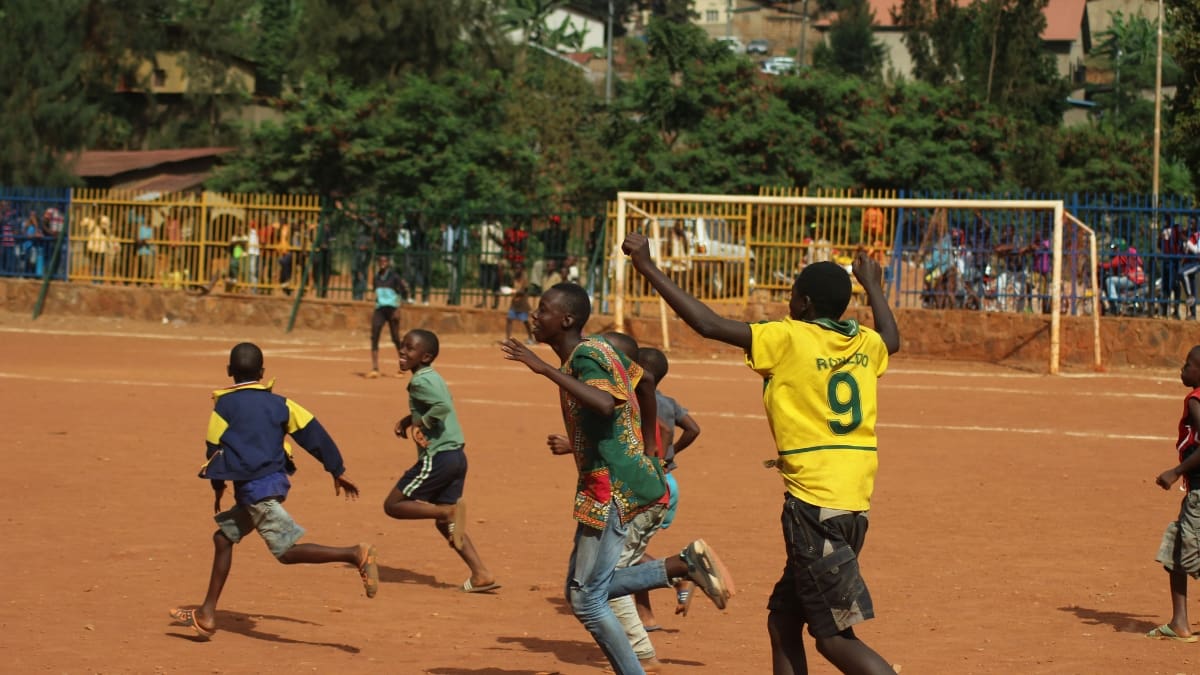Politics
Utah proposes panel to oversee transgender student-athletes

Utah lawmakers advanced an amended proposal Monday to limit transgender athletes from participating in youth sports, revisiting a heated debate that has raked through dozens of Republican-led statehouses since last year. Photo: Photo by Stavrialena Gontzou.
SALT LAKE CITY — Utah lawmakers advanced an amended proposal Monday to limit transgender athletes from participating in youth sports, revisiting a heated debate that has raked through dozens of Republican-led statehouses since last year.
The proposal would create a commission to determine which transgender athletes can participate in all youth sports, though the conversation has centered mainly on girls’ sports. It is the latest attempt by Utah Republicans to add state oversight to grade and high school sports. Similar efforts in other statehouses, including Idaho and Tennessee, have become touchstones for the broader LGBTQ rights movement, sparking legal battles and outcry.
The debate pits parents’ groups and social conservatives who believe a policy is needed to establish fairness and preserve girls’ sports against LGBTQ advocates who say the low number of transgender student-athletes suggests the issue is more about culture war messaging than leveling an unfair playing field.
In Utah, efforts to regulate transgender student-athlete participation in youth sports stalled last year amid concerns from Republican Gov. Spencer Cox and Jazz owner Ryan Smith, who worried passing a ban could jeopardize efforts to bring big events to Utah, such as the 2023 NBA All-Star Game.
Of the more than 85,000 student-athletes participating in sports overseen by the Utah High School Activities Association, only three student-athletes have gone through the association’s transgender participation eligibility review process but more may be participating, Republican Rep. Keri Birkeland, the proposal’s sponsor, said Monday.
The Associated Press last year reached out to two dozen state lawmakers in the more than 20 states considering similar youth sports measures and found only a few times it’s been an issue among the hundreds of thousands of American teenagers who play high school sports.
Birkeland, who coaches junior varsity basketball when not in the Legislature, said she’s had conversations with girls who play youth sports, including her daughters. They feel it’s unfair for transgender athletes who’ve experienced some of the effects of male puberty to participate alongside them, she said Monday, but they would take comfort if they knew a panel tasked with creating a level playing field had reviewed their eligibility.
“To those that think that I’m just trampling on women’s sports, or that this is a solution looking for a problem: All three of my daughters have played (against) transgender athletes. So this is happening in our state,” Birkeland said.
Birkeland said commission approval could bring legitimacy to transgender athletes who last year said they often feel excluded or discriminated against. However, University of Utah pediatrician Jennifer Plumb, who said her child is transgender, argued special scrutiny would make transgender kids feel more targeted.
“When we start talking about these ‘Verify that you’re girl enough, or verify that you’re boy enough (policies),’ these kiddos, they shake in their proverbial boots,” Plumb said.
The proposed commission follows the scrapping of an earlier plan to allow transgender girls to compete after changing the sex on their birth certificates and receiving one year of hormone therapy. It passed through a legislative committee on a 6-3 vote Monday, with Republicans in favor and Democrats opposed.
If the bill is enacted, transgender kids in Utah who want to play sports will be required to go before a “School Activity Eligibility Commission,” which will evaluate where they fall along “baseline ranges” regarding physical characteristics for age and gender.
The commission would be composed of members including physicians, mental health professionals, statisticians and athletic trainers. All would be appointed by Gov. Spencer Cox and leaders of Utah’s Republican-supermajority Legislature.
In Utah, all students participating in grade or high school sports upload birth certificates. Transgender students who apply to participate in a “gender-designated interscholastic activity” that doesn’t correspond with the sex listed on their birth certificate would be sent to the commission.
The appointed members would then review medical information about gender transition, including hormone treatments.
But people — including transgender student-athletes — can apply and change their birth certificates. Birkeland acknowledged basing commission criteria on birth certificates creates a loophole in her proposal. However, she said the transgender athletes she knew of hadn’t changed their birth certificates.
In red states like Utah, lobbyists who oppose creating new state laws governing when transgender athletes can participate in youth sports remain in discussion with lawmakers over the proposal, rather than electing to oppose it wholesale.
“We just don’t believe it is necessary for the Legislature to identify the specific physical characteristics that the commission consider to determine whether an individual teenager is allowed to play a particular sport,” said Troy Williams, executive director of Equality Utah.

















